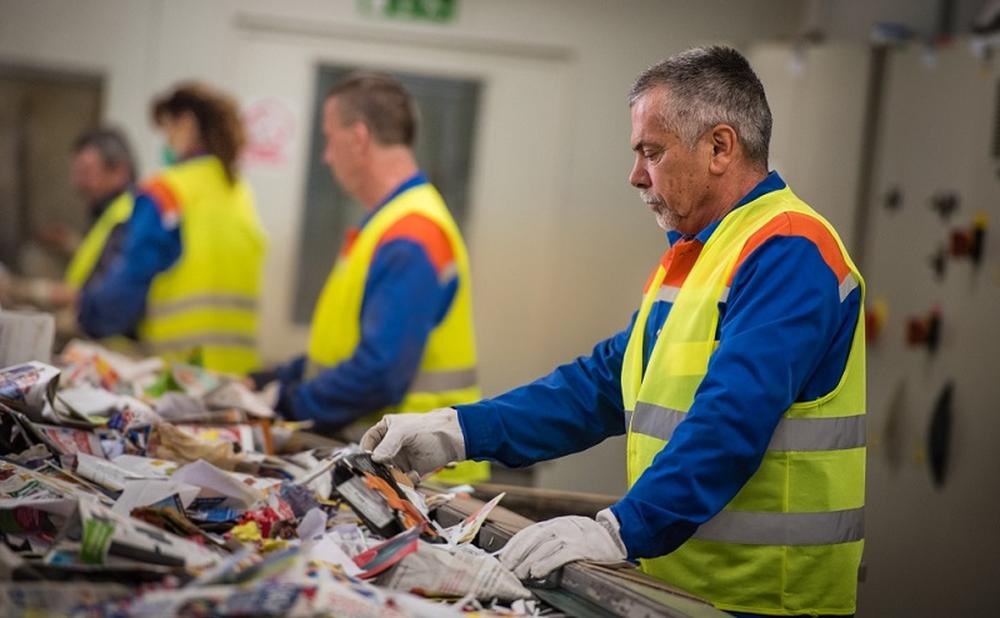- Español
- English
You are here
ECOS Scientific Cooperation Program
Stochastic programming approach for planning activities with remanufacturing under extended producer responsibility in a sustainability setting
Abstract
This project addresses the planning of remanufacturing activities under extended producer responsibility, considering the uncertainty of demand for reconditioned products, as well as the quantity and quality of end-of-life products returned by consumers. It brings together researchers from Chile and France to develop multistage stochastic programming models and algorithms that enable better decision-making, integrating efficiency and sustainability criteria, with computation times compatible with industrial practice.
This project is linked to initiatives carried out in both countries and seeks to advance international scientific collaboration, the training of young researchers, and the promotion of gender parity in research.
The goal of this project is twofold:
- To improve the efficiency and sustainability of production systems by adapting production planning as new information on uncertain parameters becomes available.
- To strengthen scientific cooperation between Chile and France by consolidating research networks and advanced training in optimization under uncertainty.
General objective
Our main objective is to develop models and solution algorithms for planning remanufacturing activities under uncertainty and extended producer responsibility setting that can be implemented in real cases, contributing to the development of sustainable production systems.
Methodological approach
The relevance of this project can be understood through two key situations: “More efficient and sustainable production” and “Robust planning under uncertainty”.
a) More efficient and sustainable production
The remanufacturing and recycling systems in France and Chile present differences and similarities that need to be mapped to understand their realities. This comparative analysis will identify key aspects that need to be modeled in order to develop more efficient and sustainable processes, reducing waste and strengthening industrial competitiveness.

b) Robust planning in the face of uncertainty
Variability in product returns and demand, along with production line changeover costs, make planning difficult. Our project develops multi-stage stochastic models that generate more reliable production plans, reducing costs and times, while supporting sustainable decision-making in uncertain contexts.

Research team
Participating institutions
- University of Santiago of Chile (USACH) – Chile.
- Adolfo Ibáñez University (UAI) - Chile
- ENSTA Paris (Institut Polytechnique de Paris) – France.
- CNAM (CEDRIC) – France.
- Université Paris-Saclay – France.
- Sorbonne Universités (LIP6) – France.
Researchers and Students
- Chile: Óscar Vásquez (Prof., USACH), Franco Quezada (Assist. Prof., USACH), Andrea Espinoza (Assist. Prof., USACH), Sebastián Dávila (Assist. Prof., USACH), Jordi Pereira (Prof., UAI), Cristian Durán (Assist. Prof., USACH), Macarena Fredes (Ph.D.), Cristóbal Mauricio (Ph.D.), Lorena Espinoza (Ph.D.), Lucía González (M.Sc.), Sol Riquelme (M.Sc.), Melisa Herrera (M.Sc), Diego Acevedo (M.Sc).
- France: Sourour Elloumi (Prof., ENSTA), Zacharie Ales (Assoc. Prof., ENSTA), Safia Kedad-Sidhoum (Prof., CNAM), Agnès Plateau (Assoc. Prof., CNAM), Céline Gicquel (Assoc. Prof., Univ. Paris-Saclay), Ruiwen Liao (Ph.D., Univ. Paris-Saclay), Natalia Jorquera (Ph.D., ENSTA-CNAM), Paulette Castillo (Ph.D., ENSTA), Christoph Durr (Prof., LIP6).
Total members: 22 | Female participation: 59% (13/22).
Contact
- International coordination: Óscar C. Vásquez (USACH) – oscar.vasquez@usach.cl
- Web: www.pdsps.usach.cl/es/ecos
